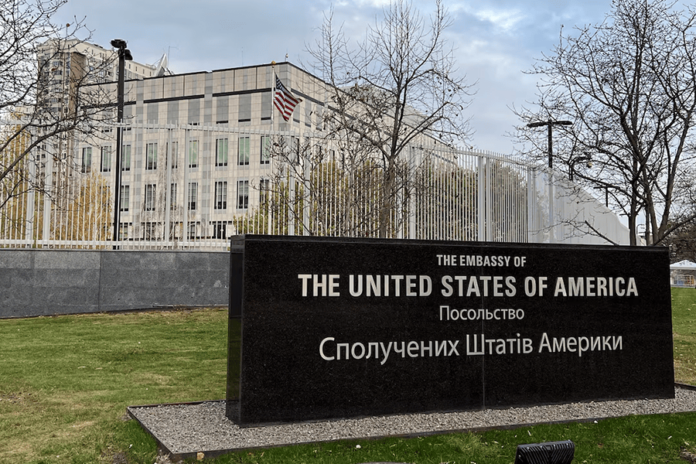Just a day after Ukraine launched U.S.-supplied missiles at a target inside Russia, concerns about possible retaliation against Kyiv have intensified.
American officials issued warnings on Wednesday about a potential major airstrike aimed at the capital, prompting the U.S. Embassy there to close for safety reasons.
According to their website, embassy staff have been advised to stay put in case of an emergency. The embassy also urged American citizens in Kyiv to be ready to seek shelter immediately if an air alert is declared.
In addition, the Italian, Greek, and Spanish embassies in Kyiv are temporarily shutting down as well. The Italian Embassy specifically cited the U.S. warning regarding a possible high-intensity airstrike.
Meanwhile, Russian forces continued their relentless attacks on Ukraine with waves of self-destructing drones and missiles overnight—something that has become quite routine since September.
The Ukrainian air force reported that out of 122 drones targeting various locations across the country, they managed to shoot down 56 and 64 did not reach their intended destinations.
In Kyiv itself, debris from intercepted drones fell across three districts; however, Mayor Vitali Klitschko assured that there were no reports of damage or injuries.
These recent attacks come just after Ukraine successfully fired American-made ATACMS missiles into Russia for the first time ever.
While Russia’s Defense Ministry claimed that this strike on an arms depot in Bryansk was largely ineffective, Ukrainian officials stated it ignited a significant fire at the depot located in Karachev—about 70 miles from the border and roughly 250 miles south of Moscow.
This shift marks a change from President Biden’s earlier stance which restricted Ukraine from using U.S.-made systems for strikes within Russia.
Additionally, his administration has now approved sending antipersonnel land mines to help slow Russia’s ongoing advance in eastern Ukraine.
Russian officials have warned that strikes within their territory would cross a red line.
Despite such threats being commonplace throughout nearly three years of full-scale invasion, Russian Foreign Minister Sergei Lavrov recently indicated that the attack on Bryansk signals an escalation desired by Ukraine and its allies.
Furthermore, Sergei Naryshkin—the head of Russia’s Foreign Intelligence Service—cautioned that NATO allies attempting to assist Ukraine with long-range strikes will face consequences according to an interview published in Russia’s National Defense magazine on Wednesday.

